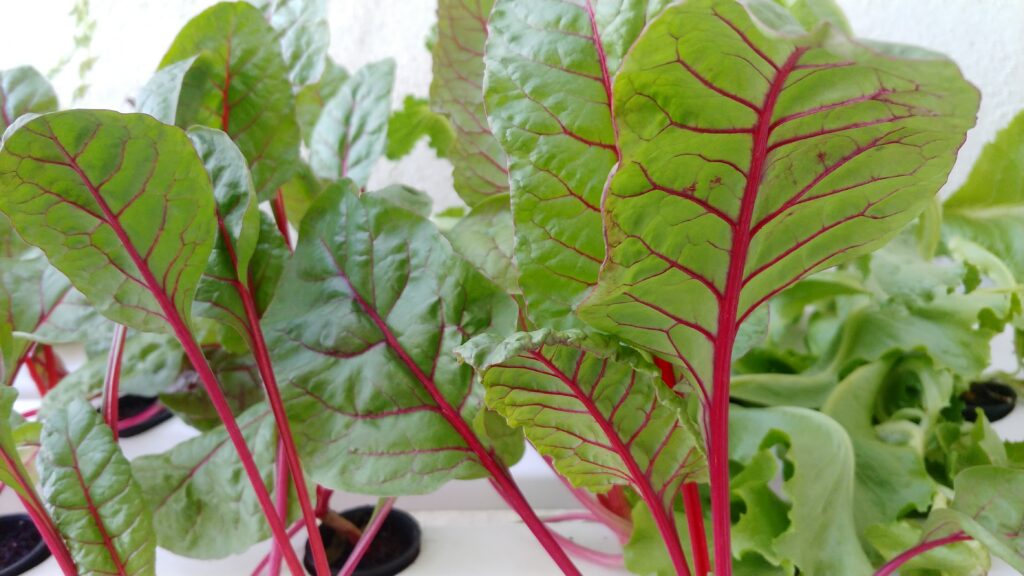Are you curious about whether you can use aquaponics or hydroponics year-round or if it’s better to only use it seasonally? In this article, we’ll explore the benefits and considerations of both options, helping you determine the best approach for your situation. Additionally, we’ll also discuss some common mistakes that beginners often make when starting with aquaponics, so you can avoid them and set yourself up for success right from the start. Whether you’re a seasoned grower or just starting out, this article aims to provide you with valuable insights and guidance in a friendly and approachable tone. So, let’s get started and unlock the potential of aquaponics and hydroponics!
Can I Use Aquaponics/Hydroponics Year-round Or Seasonally?
Introduction to Aquaponics and Hydroponics
Aquaponics and hydroponics are two popular methods of growing plants without soil. These systems offer a sustainable and efficient way to cultivate crops by using water and nutrients. Both aquaponics and hydroponics have gained immense popularity in recent years due to their ability to maximize plant growth while minimizing resource usage. Whether you are a beginner or an experienced gardener, understanding the year-round and seasonal usage of these systems is crucial to make the most of your investment.
Benefits of Aquaponics and Hydroponics
Before diving into the year-round and seasonal usage of aquaponics and hydroponics, let’s look at some of the key benefits these systems offer.
-
Water Efficiency: Aquaponics and hydroponics use significantly less water compared to traditional soil-based gardening methods. This is because water is recirculated within the system, reducing wastage.
-
Faster Growth: These soil-less systems provide plants with direct access to nutrients, resulting in faster growth rates. With the right conditions, plants grown in aquaponics and hydroponics can grow up to 50% faster than those grown in soil.
-
Space Optimization: Aquaponics and hydroponics allow plants to be grown vertically, maximizing the use of limited space. This makes these systems ideal for urban environments or areas with limited land availability.
-
Year-round Harvest: Depending on the system setup, aquaponics and hydroponics can provide a year-round harvest, regardless of the outdoor climate. This opens up the opportunity to grow crops continuously, even during colder seasons.
Understanding the Difference: Aquaponics vs Hydroponics
While both aquaponics and hydroponics share the common goal of soil-less plant cultivation, there are crucial differences between the two.
-
Nutrient Source: In aquaponics, fish or other aquatic animals are integrated into the system to provide the necessary nutrients for plant growth. The waste produced by the fish serves as a natural fertilizer. In hydroponics, on the other hand, nutrients are manually added to the water.
-
Ecosystem Balance: Aquaponics creates a symbiotic relationship between fish and plants. The waste produced by the fish is converted into nutrients by beneficial bacteria, which are then absorbed by the plants. This creates a self-sustaining ecosystem. In hydroponics, the nutrient levels must be carefully monitored and adjusted to provide optimal conditions for plant growth.
-
Maintenance Complexity: Aquaponics systems require more careful monitoring and maintenance due to the integration of fish and the delicate balance of the ecosystem. Hydroponic systems, on the other hand, are generally easier to maintain as they rely solely on manually added nutrients.
Year-round Usage of Aquaponics Systems
Aquaponics systems have the potential for year-round usage, allowing you to grow plants even during the colder seasons. The key to maintaining a successful year-round aquaponics system is controlling the temperature and lighting conditions.
-
Temperature Control: Fish and plants have specific temperature requirements for optimal growth. To achieve year-round cultivation, you will need to ensure the water temperature in the system remains within the suitable range. This may involve heating the water during colder months or providing shade and ventilation during hotter periods.
-
Lighting: Since sunlight availability varies throughout the year, incorporating artificial lighting into your aquaponics system is essential for year-round usage. LED grow lights are commonly used in aquaponics setups to provide the necessary spectrum and intensity for plant growth.
Advantages of Using Aquaponics Year-round
Using aquaponics year-round offers several advantages for both hobbyists and commercial growers.
-
Consistent Harvest: With year-round usage, you can enjoy a steady supply of fresh produce regardless of the outdoor growing season. This is particularly valuable for regions with short growing seasons or limited access to locally grown produce.
-
Cost Savings: By maintaining a year-round aquaponics system, you can potentially reduce your grocery bills and save money in the long run. Additionally, with proper planning, you can grow high-value crops that fetch a premium price in the market.
-
Educational Opportunities: Year-round aquaponics systems provide an excellent educational opportunity for schools or community organizations. Students can witness the entire growth cycle of plants and fish while learning about sustainable farming practices.
Disadvantages of Using Aquaponics Year-round
While year-round aquaponics offers numerous benefits, there are a few challenges to consider.
-
Energy Consumption: Maintaining a year-round aquaponics system can require significant energy inputs, especially for temperature control and supplemental lighting. This can impact your overall electricity consumption and contribute to your carbon footprint.
-
Higher Maintenance Requirements: Year-round aquaponics systems demand more attention and maintenance compared to seasonal setups. Monitoring water temperature, nutrient levels, and overall system health becomes crucial throughout the year.
Seasonal Usage of Aquaponics Systems
Alternatively, you may choose to use aquaponics systems only seasonally, adapting to the outdoor growing conditions and climate. Seasonal aquaponics is more suitable for those who are not interested in year-round cultivation or have limited resources for maintaining a system throughout the year.
-
Customized for Optimal Conditions: By aligning your aquaponics system with the growing season, you can take advantage of the natural availability of sunlight and outdoor temperatures. This can result in reduced energy costs and less reliance on artificial lighting and temperature control equipment.
-
Flexibility: Seasonal usage allows you the freedom to experiment with different crops and growing techniques. You can adapt your system to the changing needs and preferences, exploring a wider range of plants without committing to year-round cultivation.
Advantages of Using Aquaponics Seasonally
Seasonal aquaponics has its own set of advantages that may appeal to certain growers.
-
Reduced Energy Consumption: Since seasonal aquaponics relies on natural sunlight and outdoor temperatures, energy consumption can be significantly lower compared to year-round setups. This can lead to cost savings and a smaller environmental impact.
-
Lower Maintenance Commitment: As the system is only operational during the growing season, the overall maintenance requirements are reduced. This can be particularly beneficial for those with limited time or resources to devote to a year-round system.
Disadvantages of Using Aquaponics Seasonally
While seasonal aquaponics offers its own benefits, there are a few potential downsides to consider.
-
Limited Harvest Period: With seasonal usage, your harvest period will be limited to the outdoor growing season. If you live in an area with a short growing season, you may miss out on opportunities for longer cultivation.
-
Inconsistent Supply: Depending on the growing conditions and climate, the availability of fresh produce may not be consistent throughout the year. This can impact your ability to rely on your aquaponics system as a consistent food source.
Common Mistakes Beginners Make with Aquaponics and Hydroponics
Both aquaponics and hydroponics can be rewarding, but beginners often make some common mistakes.
-
Overfeeding: It can be tempting to provide more nutrients to the plants, thinking it will lead to better growth. However, overfeeding can cause nutrient imbalances and harm both the plants and the aquatic animals in an aquaponics system.
-
Inadequate Monitoring: Beginners may neglect regular monitoring of water parameters such as pH levels, ammonia, nitrite, and nitrate levels. This can lead to imbalances and negatively impact the health of the plants and fish.
-
Improper Fish Selection: Choosing the wrong fish species can be a common mistake in aquaponics systems. Some fish may produce excessive waste, leading to nutrient imbalances, while others may not thrive in the specific conditions of your system.
-
Lack of Research: Beginners should thoroughly research and understand the specific requirements of the plants and fish they intend to cultivate. Failing to provide the necessary conditions, such as temperature or lighting, can hinder the growth and overall success of the system.
By educating yourself and learning from experienced aquaponics and hydroponics enthusiasts, you can avoid these common pitfalls and ensure a successful and rewarding gardening experience.
In conclusion, both aquaponics and hydroponics have the potential to be used year-round or seasonally. The choice depends on your specific goals, resources, and preferences. With careful planning and attention to system requirements, you can enjoy the benefits of soil-less gardening and grow fresh produce whenever it suits your needs. Whether you opt for year-round or seasonal usage, aquaponics and hydroponics offer a sustainable and efficient way to cultivate plants, providing an exciting and rewarding journey for both beginners and experienced growers alike.


